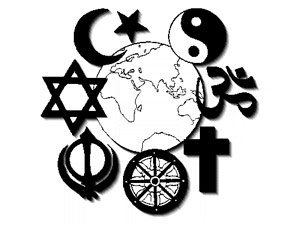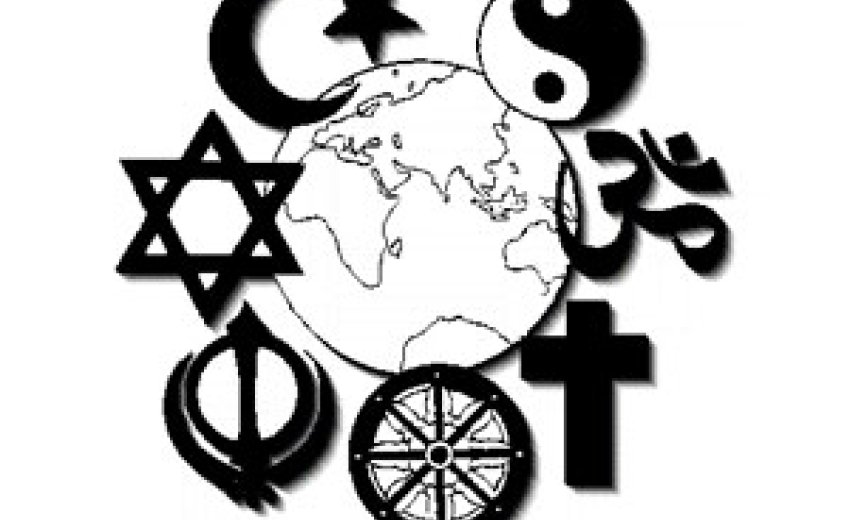 Here’s something that Catholics, Mormons, Presbyterians, United Methodists, Seventh-day Adventists, Hindus, United Sikhs, Muslims, Episcopalians, Reform Jews and Orthodox Jews can agree on, as well as the National Association of Evangelicals, National Council of Churches and devotees of Santeria and Yoruba religions. Even Baptists are in agreement, whether Southern, independent or part of a coalition of various denominations. They all support the right of religious groups to hire and fire employees who could be construed as "ministers" — including teachers in faith-based schools — on grounds that would be otherwise discriminatory, whether due to race, gender and disability or other reasons. Dozens of organizations, religious and otherwise, are choosing up sides in a case before the U.S. Supreme Court over a Michigan’s Christian school’s firing of an employee who is suing over alleged discrimination because she has a disability. The school is arguing that courts can’t review the claim because she was essentially a minister. The organizations have filed friend-of-the-court briefs pro or con. Most religious groups favor the school, as do some secular organizations. Among those opposing it are various groups that support strict church-state separation — such as the ACLU and Americans United for Separation of Church and State — various atheist groups, a coalition of advocates for victims of sexual abuse by clergy (who don’t want legal protections extended to perpetrators’ employers), and some faith-based groups with Jewish and Sikh affiliations. As far as I can tell, only one religious denomination is taking the teacher’s side: the Unitarian Universalist Association. At issue is the question: Who’s a minister? Few people are disputing that preachers, pastors, rabbis and others are ministers and that the government can’t violate religious freedom by meddling in their hiring and firing. But what about other employees of ministries? That issue is playing out in other cases, including one involving two professors dismissed from Lexington Theological Seminary in a case now before the Court of Appeals. The seminary claims they were ministerial employees; the former professors say they weren’t, partly because one of them is Jewish, the other is Methodist and the school is affiliated with the Christian Church (Disciples of Christ). And the Billy Graham Evangelistic Association has been trying to fend off a race-discrimination claim by a former administrative assistant by claiming she was essentially a minister. The arguments in the Supreme Court case vary, but here are a couple samples. From the National Council of the Churches of Christ In The USA, Baptist Joint Committee for Religious Liberty, National Association of Evangelicals and others, supporting the school:
"The ministerial exception - is a clear and crucial implication of religious liberty, church autonomy, and the separation church and state. - A called Lutheran teacher with religious-education duties in a mission-oriented school integrating faith and learning is easily covered by the ministerial exception. It should be remembered that at any point in time any given religious community is a mere generation away from extinction, and that teachers in religious schools are commonly on the front line of conveying the faith." From a coalition of religion professors, supporting the teacher, which opposes a "breathtaking" expansion of the definition of ministers:
"One irony and injustice in the ministerial rule is that women employees of denominations that do not ordain women suddenly become ministers at the moment they file a lawsuit. Although some Roman Catholic, Muslim and Orthodox Jewish women may not become priests, imams, or rabbis and perform their jobs with full understanding that they cannot be ministers, the courts and churches confer ministerial status upon them just long enough to keep their lawsuits out of court." From the U.S. Conference of Catholic Bishops, Church of Jesus Christ of Latter Day Saints, the Presiding Bishop of the Episcopal Church and the Union of Orthodox Jewish Congregations of America, supporting the school:
"The church must have the right, free from state interference, to select those engaged in church governance, worship, teaching or other related functions, regardless of whether they have other duties as well." From Americans United for Separation of Church and State, American Civil Liberties Union, National Council of Jewish Women, Sikh Council on Religion and Education and Unitarian Universalist Association, supporting the teacher:
"(Some) courts have - converted the ministerial exception into a shield for all forms of discrimination and retaliation, regardless of motivation. And they have prevented judicial redress of even the most flagrant racial or sexual harassment, even when motivated by naked animus unrelated to any religious belief." From the Muslim-American Public Affairs Council, United Sikhs, Church of the Lukumi Babalu Aye, International Society for Krishna Consciousness, O Centro Beneficente Uniao Do Vegetal and Templo Yoruba Omo Orisha:
"Minority religions whose faith traditions are often foreign to judges and jurors and who lack political and financial clout to defend against misconceptions are particularly susceptible to having their religious freedoms infringed." The case is scheduled to be argued Oct. 5. The justices will have plenty of reading to do in the meantime. |
 Peter Smith has covered religion for The Courier-Journal since 2000. He blogs about religion and spirituality and how they intersect with our ethics, our work, our schools, our government and other areas of our lives.
Peter Smith has covered religion for The Courier-Journal since 2000. He blogs about religion and spirituality and how they intersect with our ethics, our work, our schools, our government and other areas of our lives.
He covers Kentucky's and Indiana's diverse religious scene -- from revivals to scandals, from large denominations such as Baptists and Catholics to small but growing groups such as Muslims, Mormons and those with no religion. He has more than 20 years of experience as a journalist and also worked on the "God beat" as a correspondent for Religion News Service in North America and Europe. He has received reporting awards from the American Academy of Religion, the Religion Communicators Council and the Louisville chapter of the Society of Professional Journalists. He has a bachelor's from Oral Roberts University and a master's of arts in religion from Louisville Presbyterian Theological Seminary. Contact him at [email protected] |
